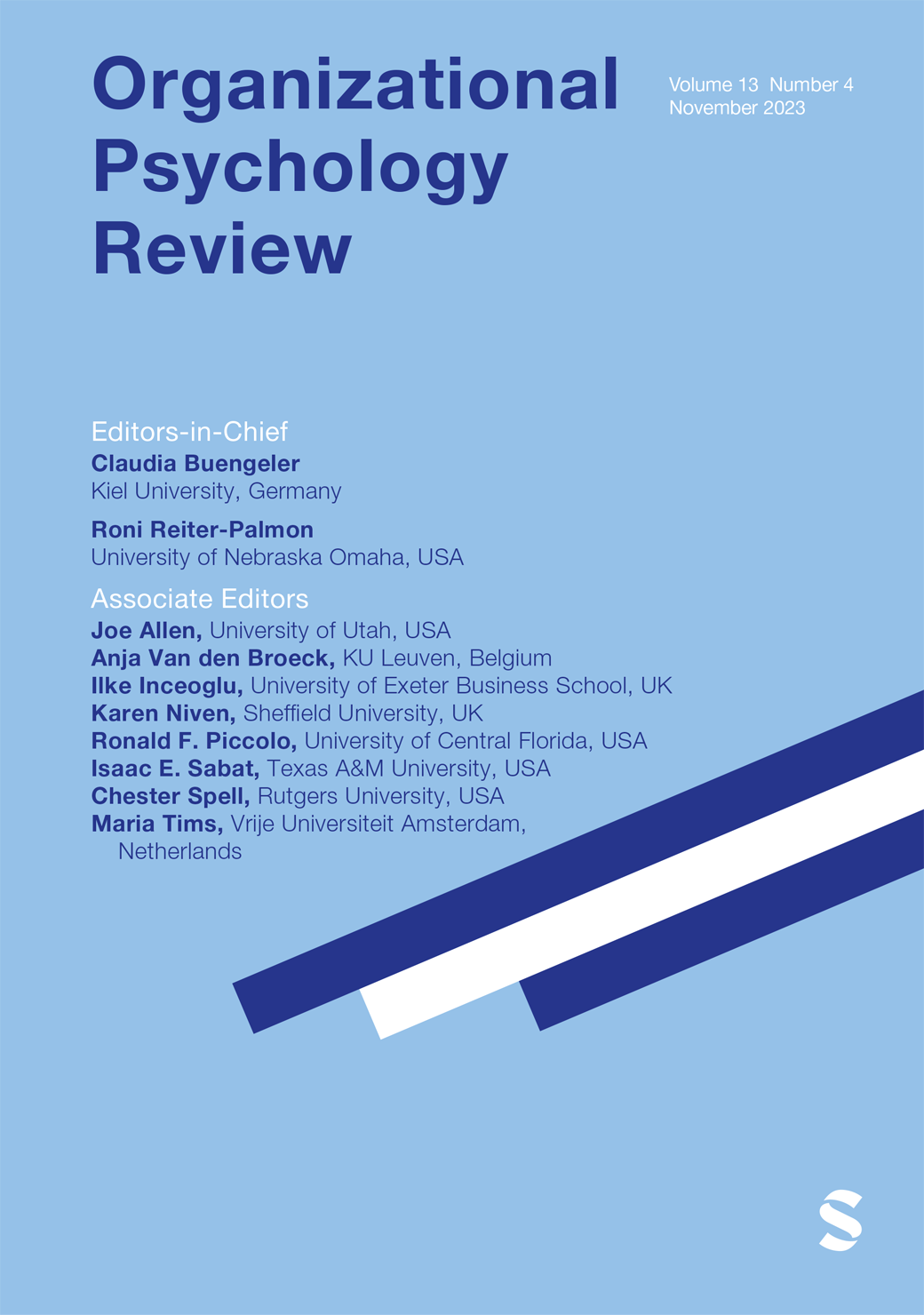家庭工作溢出效应对主观幸福感的影响:应对策略的作用
IF 7.1
1区 心理学
Q2 MANAGEMENT
引用次数: 0
摘要
目的。这项研究的重点是与组织中的性别包容有关的问题。调查显示,雇主可以支持女性在工作和家庭两方面取得平衡。有育儿义务的员工可以将家庭对工作的影响视为积极或消极的,这种看法可能会影响他们的幸福感。根据人-环境契合理论,我们验证了应对策略可以减少消极后果,强化积极后果的假设。研究设计。来自独联体国家有照顾孩子义务的妇女(N = 200)参加了这项调查。这些数据是与SelfMama项目密切合作收集的。发现。结果表明,积极的重新诠释和成长、计划、否认和注意等应对策略导致家庭对工作的负面溢出效应与员工幸福感之间的负向关系不显著,而在变量值较低的情况下,情绪宣泄和行为脱入的作用方式相似。与此同时,计划、情绪宣泄、否认、关注等应对策略的高表现强化了家庭对工作的正向溢出效应与幸福感之间的关系,而行为抽离在低表现下也以类似的方式被调节。因此,以下高表现的应对策略是最有效的调节者:高表现时的计划、否认和注意,低表现时的情绪发泄和行为脱离。结果的价值。所获得的观察结果将使公司和员工本身的管理层能够增加性别包容,指出可以为有育儿承诺的员工培训更有效的应对策略。本文章由计算机程序翻译,如有差异,请以英文原文为准。
The impact of family-to-work spillover on the subjective well-being: role of coping strategies
Purpose. The study focuses on issues related to gender inclusion in organizations. It examine show employers can support women in achieving a balance in two domains: work and family. Employees with childcare commitments can perceive the impact of family on work as positive or negative, and this perception might affect their well-being. Following person-environment fit theory, we test the hypothesis that coping strategies can reduce negative consequences and strengthen positive ones. Study design. Women from CIS countries with childcare commitments (N = 200) participated in this survey. The data was collected in close partnership with the SelfMama project. Findings. The results demonstrate thatsuch coping strategies as positive reinterpretation and growth, planning, denial, and attention leads to insignificance of the negative relationship between the negative spillover effect of the family on workand employee well-being, while venting of emotions and behavioral disengagement act in a similar wayin case of low variable value. At the same time, such coping strategies as planning, venting of emotions, denial, and attention, with their high manifestation, strengthened the relationship between the positive spillover effect of the family on work and well-being, while behavioral disengagement moderated in a similar manner at low values. Thus, the following coping strategies with high manifestation are the most effective moderators: planning, denial, and attention in case of their high manifestation, as wellas venting of emotions and behavioral disengagement in case of their low value. Value of results. The observations obtained will allow the management of companies and employees themselves to increase gender inclusion, pointing to more effective coping strategies that can be trained for employees with childcare commitments.
求助全文
通过发布文献求助,成功后即可免费获取论文全文。
去求助
来源期刊

Organizational Psychology Review
Multiple-
CiteScore
10.00
自引率
1.60%
发文量
25
期刊介绍:
Organizational Psychology Review is a quarterly, peer-reviewed scholarly journal published by SAGE in partnership with the European Association of Work and Organizational Psychology. Organizational Psychology Review’s unique aim is to publish original conceptual work and meta-analyses in the field of organizational psychology (broadly defined to include applied psychology, industrial psychology, occupational psychology, organizational behavior, personnel psychology, and work psychology).Articles accepted for publication in Organizational Psychology Review will have the potential to have a major impact on research and practice in organizational psychology. They will offer analyses worth citing, worth following up on in primary research, and worth considering as a basis for applied managerial practice. As such, these should be contributions that move beyond straight forward reviews of the existing literature by developing new theory and insights. At the same time, however, they should be well-grounded in the state of the art and the empirical knowledge base, providing a good mix of a firm empirical and theoretical basis and exciting new ideas.
 求助内容:
求助内容: 应助结果提醒方式:
应助结果提醒方式:


